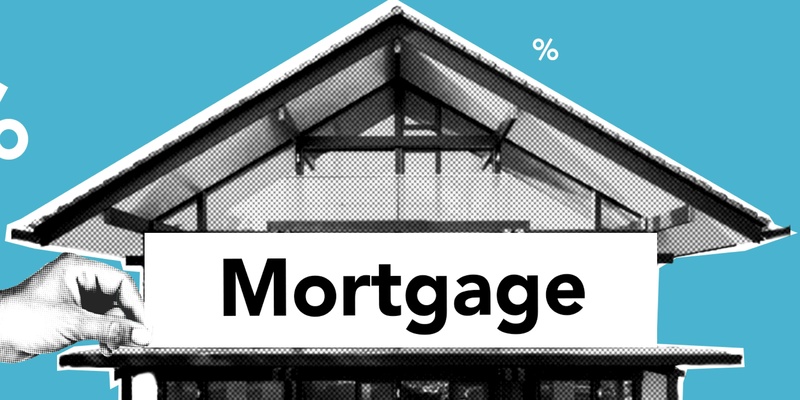Debt-To-Income Ratio Need for a Mortgage
Nov 02, 2023 By Susan Kelly
Lenders may quickly get an idea of your overall financial status by looking at this ratio, which indicates the percentage of your income that will go toward making payments on your debt. This enables them to understand better the monthly mortgage payment they can afford comfortably.
The Following Is A Breakdown Of Those Categories:
Front-end DTI:
This statistic represents the amount of home debt you have compared to your monthly income. It is also known as a PITI ratio for principal, interest, taxes, and insurance. Your front-end debt-to-income ratio would be [$1,500 / 6,000 =.25 or 25%] if you were looking to purchase a property that required a monthly payment of $1,500 and a monthly income of $6,000 before taxes and other expenses.
Back-end DTI:
The back-end debt-to-income ratio, often known as the "total" DTI, considers all your monthly loans and income. If your income of $6,000 per month, have a vehicle payment of $600, a student loan payment of $400, and a projected mortgage payment of $1,500, the back-end DTI calculation. The back-end DTI is considered the most relevant by most lenders since it more properly represents what you can pay each month.
Income-to-Debt Ratios for Various Types of Loans
The sort of mortgage loan you wish to get will play a role in determining how much of a debt-to-income ratio your potential lender wants to see from you. FHA and conventional loans have the most lenient requirements for debt-to-income ratios (DTI), whereas USDA and VA loans have the most stringent requirements for DTI. USDA loans are intended for use in rural areas specifically designated by the government, and VA loans are intended for veterans and military members. The following is a list of the debt-to-income ratio criteria for each form of loan:
FHA loans:
In most cases, you will require a back-end DTI ratio of 43% or below. If you have a good credit score and an energy-efficient house, you may have a DTI of up to 50%. This will depend on the specifics of your situation.

VA loans:
The maximum allowable DTI for loans guaranteed by the Department of Veterans Affairs is typically set at 41%. They sometimes approve DTIs that are higher than that, but only if your income is sufficiently high.
USDA loans:
A DTI of 41% or less is often required to qualify for loans guaranteed by the United States Department of Agriculture. If a borrower's front-end ratio is lower than 32%, the maximum DTI they may have is 44%.
Conventional loans:
As a general rule, you need to have a back-end DTI of 36% or below. Conventional loans may permit debt-to-income ratios of up to 50% if the borrower has a credit score that is high enough. The front-end DTI isn't as critical as it used to be, but most lenders still want to see it at 31% or below (or 29% for USDA loans). This shows that the buyer's present earnings are sufficient to afford their new mortgage payment easily.
Improving Your Debt-to-Income Ratio
If you discover that the ratio of your debts to your income does not meet the requirements for the loan you want to apply for, you will need to reduce your ratio before applying for a mortgage. Try out the suggestions below.
Pay Down Your Debts.
Make additional payments toward other debts currently being serviced, and pay off large sums on credit cards. Put any unexpected money, such as a bonus for the holidays or a tax return, toward paying down your current obligations until your debt-to-income ratio (DTI) is within a healthy range. This includes holiday bonuses and tax refunds.
Boost Your Income.
Your debt-to-income ratio (DTI) may be improved even by an increase of a few hundred dollars per month. Therefore you should make every effort to boost your income. This may include requesting a pay increase, taking on freelance work, beginning some part-time or temporary employment, or finding a second job. Every little amount makes a difference.

Avoid Taking On Extra Debt.
Your debt-to-income (DTI) ratio will worsen the more loans you take out and the larger those credit card amounts will go over time. It is best to hold off on establishing new credit lines until you have bought a property.
You should recalculate your DTI to evaluate how far you've come and if you've achieved the goal of lowering your debts or increasing your income. Your credit score should improve if you refrain from taking on any new debt and progress in paying off the debt you already have. This will improve your case when applying for a mortgage loan, and you may even become eligible for interest rates that are lower as a result of this.

Exploring Better Mortgage and Rocket Mortgage
Mar 19, 2024
Compare Better Mortgage and Rocket Mortgage for your home loan needs. Learn about their features, pros, and cons.

Top 7 Tips For Best Way To Save Money On Car Rentals
Dec 17, 2023
The return of the road trip is one of the most notable changes in vacation habits after the COVID-19 pandemic. However, the availability of rental cars may be constrained during times of strong demand. It comes as no surprise that the cost to rent a car is through the roof if you can even locate one to rent. The excellent news is that automobile rentals don't have to eat up your entire travel budget. Whether on a short weekend trip or a month-long vacation across the country, these 10 tips can help you save money on your rental car.

Personal Loan Calculator for Home Improvements
Nov 25, 2023
You can use the loan calculator for home upgrades to see what the overall cost of the loan will be, including the interest and monthly payments.

What do we mean by a Policy Loan
Nov 28, 2023
The cash value of a person's life insurance policy is used as collateral for a policy loan given by the insurance company. A "life insurance loan" is one common name for this type of loan. While historically, they had cheap interest rates, this is not necessarily the case currently

Choosing the Right Financial Service for Veterans
Mar 19, 2024
Compare the financial services for veterans offered by Veterans First and Veterans United. Decide which institution better aligns with your needs.

Exploring Mortgage Options
Mar 19, 2024
Explore types of mortgages including Navy Federal Credit Union and USAA mortgages. Uncover key differences and considerations for homebuyers.

Review of AARP Company
Oct 11, 2023
The American Association of Retired Persons (AARP) oversees several community-based initiatives that aim to combat senior housing instability and social isolation. The AARP has also spearheaded and overseen initiatives to improve entitlement programmes like Medicare and Social Security

Reasons Your Credit Limit Increase Was Denied
Feb 25, 2024
A greater credit limit provides you with more spending power, helps you make better use of your available credit, may assist in improving your credit score, and can even assist in your qualification for credit cards with even higher credit limits

Understanding the Different Types of Property Deeds
Jan 09, 2024
A deed must be created to change who legally owns a piece of land. Typical types of deeds for several kinds of real estate are provided here

7 ways to strengthen your home's refinancing appraisal value
Feb 13, 2024
To buy a new home, you must first refinance the mortgage on the one you already own. This is because if the value of your refinancing evaluation is high, you have a better chance of getting good terms like a lower interest rate and a longer loan term

Understanding Millennial Homeownership Trends
Mar 19, 2024
Uncover the statistical data on millennial homeowners and homebuyers. Explore this demographic's composition within the housing market.

Understanding Real Estate Investment Trusts (REITs)
Mar 19, 2024
Explore Real Estate Investment Trusts (REITs), their role as investment vehicles, benefits, and how they operate in the finance sector.